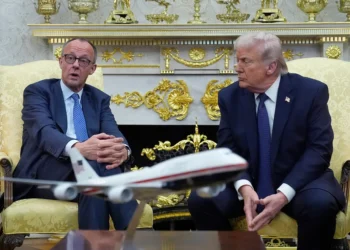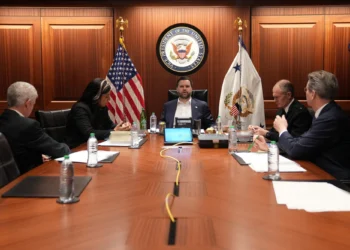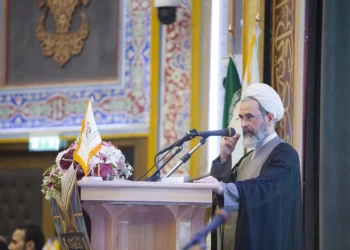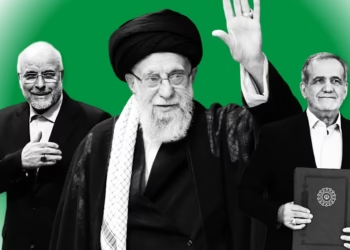WASHINGTON (Realist English). Two Israeli embassy staff members were shot and killed Tuesday evening outside the Capital Jewish Museum in Washington, D.C., in what officials are calling a targeted and politically charged attack. The victims, a man and a woman, were a couple planning to become engaged — the man had reportedly purchased a ring last week and intended to propose next week in Jerusalem.
U.S. Homeland Security Secretary Kristi Noem confirmed the deaths, calling the incident a “depraved” act. “We are actively investigating and working to get more information to share,” she wrote on X (formerly Twitter). “We will bring this depraved perpetrator to justice.”
According to D.C. Police Chief Pamela Smith, the victims were leaving a Jewish community event at the museum hosted by the American Jewish Committee when the attacker opened fire on a group of four individuals. “Despite all life-saving efforts, both victims succumbed to their injuries,” Smith said.
The suspect, identified as Elias Rodriquez, a 30-year-old from Chicago, had been observed pacing outside the venue prior to the shooting. He was detained at the scene and, according to Smith, shouted “Free, free Palestine” while in custody.
Israeli embassy spokesperson Tal Naim Cohen confirmed that both victims were employees of the embassy. She stated they had been shot “at close range” but declined to provide further comment regarding the assailant or possible motives.
Israeli Ambassador to the UN Danny Danon condemned the shooting as “a depraved act of antisemitic terrorism”, warning that “harming diplomats and the Jewish community is crossing a red line.” He added that Israel is confident U.S. authorities will respond firmly and reiterated Israel’s commitment to the safety of its citizens and representatives worldwide.
The Israeli Foreign Ministry also confirmed that the shooter had been apprehended and expressed confidence in ongoing U.S. law enforcement efforts. The killing of two Israeli diplomats on U.S. soil, amid an event celebrating Jewish heritage, is a stark escalation with both political and symbolic implications. As tensions over the Gaza conflict reverberate globally, the attack raises urgent questions about the security of diplomatic personnel and the growing intersection of domestic protest movements with international flashpoints. Whether labeled an act of terrorism, hate crime, or political violence, the incident underscores a fragile and volatile environment — one where symbolism can become a trigger, and where diplomatic status is no longer a shield.


















